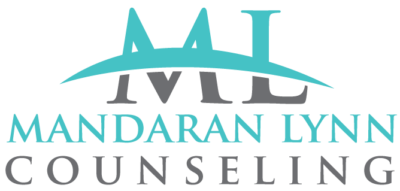How much does it cost?
Initial assessment: 90 minutes $150.00
Subsequent sessions: 50 minutes $100.00
How long are the sessions?
The initial session is 90 minutes long. After that, most sessions will be 50 minutes long. They will start on the hour and will end 10 minutes prior to the following hour.
Why is it called a therapy hour if the session is only 50 minutes long?
There are several reasons. First, most insurance companies and employee programs will only cover a 45, 50 or 52 minute session. Anything over that is bumped up in cost. Second, to maintain a good flow in schedule it’s best to start on the hour. By ending 10 minutes prior to the next hour, I’m able to take some deep breaths, re-read notes from our previous session, review what occurred during our previous session, and get into a good mind space to be fully present for our session.
What form of payment do you accept?
Cash, Check, and Credit Card.
Do you take insurance?
At this point, I do not take insurance. If you let me know in advance, I can print out an invoice for you, and you are welcome to submit our session to your insurance.
Do you accept EAP’s (Employee Assisted Programs)?
Yes. Most EAP’s have contracts set up with local providers. If you call and let them know you would like to see me, they will be able to set up a contract with me, or I may already have one set in place with them.
What is your therapeutic approach?
My Therapeutic Frame:
Although I consider myself a collaborative therapist, I use two main theories to form my therapeutic frame. I pull strongly from both Solution Focused Therapy (SFT) and Emotionally Focused Therapy (EFT). Additional frameworks are often brought in for reference during my work. With these theories as my frame, I am able to take a client centered approach in which I rely on the unique characteristics of the client to adapt my counseling to best fit their needs. In therapy, I am not a judge nor do I take sides. I believe that we all have the answers we need, sometimes we just need help sorting through them or identifying what some of those solutions can be. I work with a humanistic and systemic approach, looking at how the problem is not only affecting the person, but their family, their work environment, habitat, etc and vice versa, how the problem, work environment, habitat, and family are affecting the person. I take a non-judgmental, curious approach to therapy to gain insights into my clients’ values, beliefs, and goals. Counseling is a collaborative interaction with a counselor to help foster better relationships, better communication, greater understanding of self, strategies for self-care, and in making choices that are more consistent with your values and goals. Therapeutic change cannot occur without investment of the client.
What models do you use in therapy?
EMDR, EFT, SFT, CBT, IFS, Play therapy, Sex therapy, TFCBT, ACT, Gottman, Structural Therapy, Strategic Therapy, Narrative, and Client-Centered Therapy.
What type of clients do I work with?
I work with those suffering from depression, anxiety, postpartum anxiety and depression, pregnancy loss, bereavement, disordered eating and body image concerns, adolescents with self-esteem issues, infidelity, sex therapy, couples counseling, premarital counseling, and developing better communication skills.
Past work experience?
- Therapist: Northeastern Counseling Center, Vernal Utah, May 2015 to August 2017.
- Therapist Intern: Fort Belvoir Army Base, Fort Belvoir Virginia, May 2013 to May 2014.
- Therapist Intern: Center for Family Services, Virginia Tech, May 2012 to May 2014.
- Group Facilitator: Strengthening Families, Arlington Virginia, Sept. 2011 to Dec. 2012.
- Psychosocial Rehabilitation Specialist: Portneuf Valley Family Services, Pocatello Idaho, Nov. 2010 to May 2011.
- Eating Disorder Treatment Center – Direct Care Supervisor: Avalon Hills, Logan UT, April 2008 January 2010
- Master’s Thesis: “Hesitantly Happy: The Influence of a Late Term Pregnancy Loss during the Subsequent Pregnancy”
